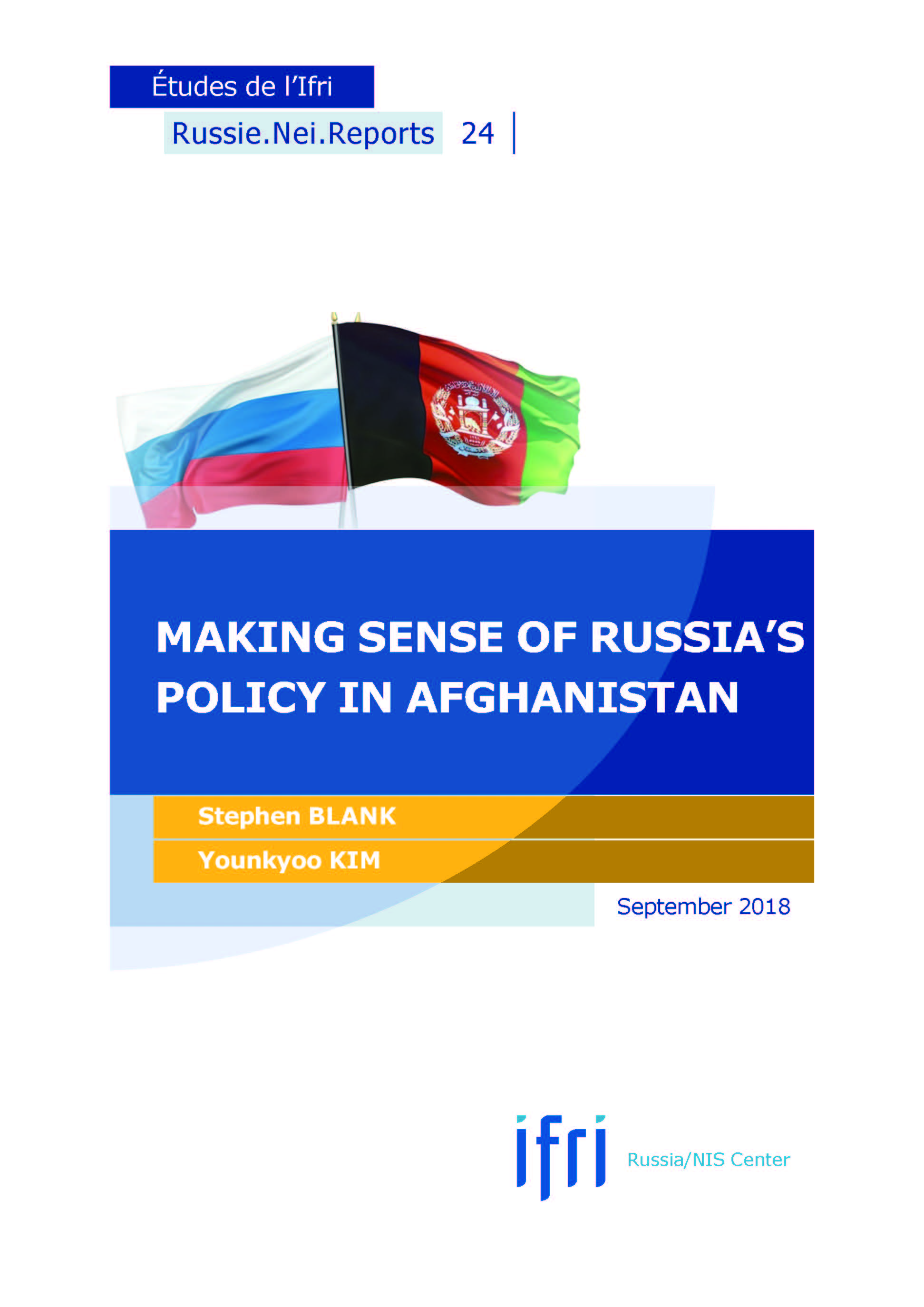Making Sense of Russia’s Policy in Afghanistan

For some time, Western sources have been accusing Moscow of backing the Taliban regime in Afghanistan.
However, little effort has been done to analyze the modalities of this support and the way it relates to Moscow's overall policies and objectives in Central and Southern Asia. This essay sets out to explain both the trend in Russia’s policies towards Afghanistan between 2013 and 2017, and the reasons underneath them. It explores Russia's actions vis-à-vis contending forces in Afghanistan and Central Asia in the broader context of Moscow’s rapprochement with Pakistan, its ties to India and China and overall anti-Americanism that has grown exponentially since 2014. We argue that this approach would provide a better understanding of Russia’s policies and objectives in Afghanistan.
Stephen Blank has been a Senior Fellow at the American Foreign Policy Council in Washington since 2013.
Younkyoo Kim is Professor in the Division of International Studies and Director of the Center for Energy Governance & Security at Hanyang University, Seoul.
Download the full analysis
This page contains only a summary of our work. If you would like to have access to all the information from our research on the subject, you can download the full version in PDF format.
Making Sense of Russia’s Policy in Afghanistan
Related centers and programs
Discover our other research centers and programsFind out more
Discover all our analysesRussia, the Palestinians and Gaza: Adjustments after October 7th
The Soviet Union (USSR), and subsequently the Russian Federation as its internationally recognized legal successor, has consistently sought to play a visible role in efforts to resolve the Israeli-Palestinian conflict.
Deathonomics: The Social, Political, and Economic Costs of War in Russia
The report attempts to outline and examine a truly new phenomenon in Russian society, dubbed “deathonomics”—the making of a mercenary army against the backdrop of the Kremlin’s war in Ukraine, eventually replacing both the Soviet (conscript) and early new Russian (contract) armies. It notes that, by the end of 2023, this trend had turned the military service into one of the highest-paying professions in the country, something not seen in Russia on such a scale since the late 17th century.
Russia's Asia Strategy: Bolstering the Eagle's Eastern Wing
Among Russia’s strategic priorities, Asia traditionally played a secondary role compared to the West. In the mid-1990s, then Foreign Minister Yevgeny Primakov initiated a rapprochement with China and India. Then, in 2014, deteriorating relations between Russia and the West prompted Moscow to begin its “great pivot to the East”.
Kazakhstan After the Double Shock of 2022: Political, Economic and Military Consequences
The year 2022 represented a dual shock for Kazakhstan. In January, the country faced its most severe political crisis since independence, followed in February by Russia’s full-scale invasion of Ukraine, which cast uncertainty over the borders of post-Soviet states. These consecutive crises profoundly shaped Kazakhstan’s domestic and foreign policy.











